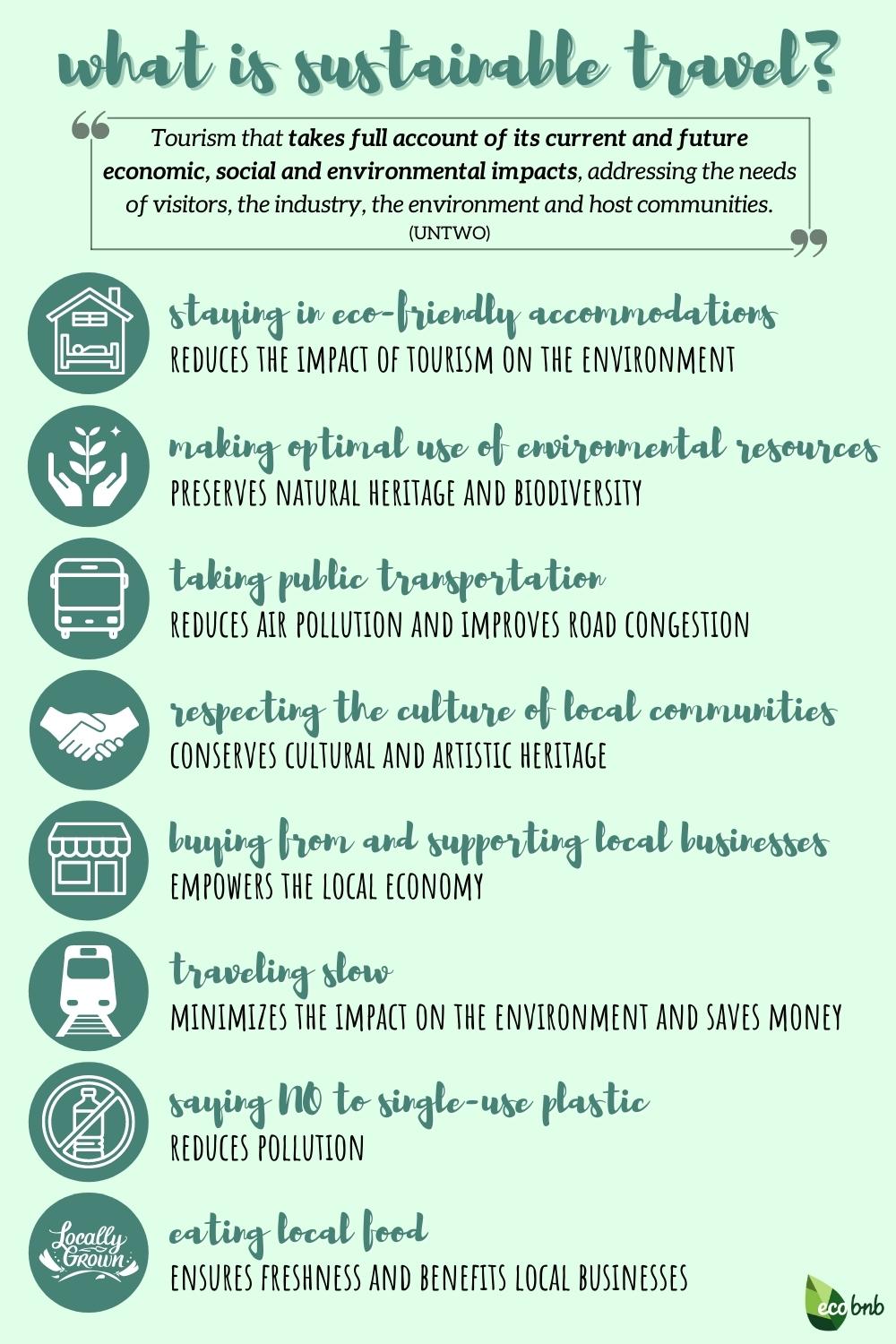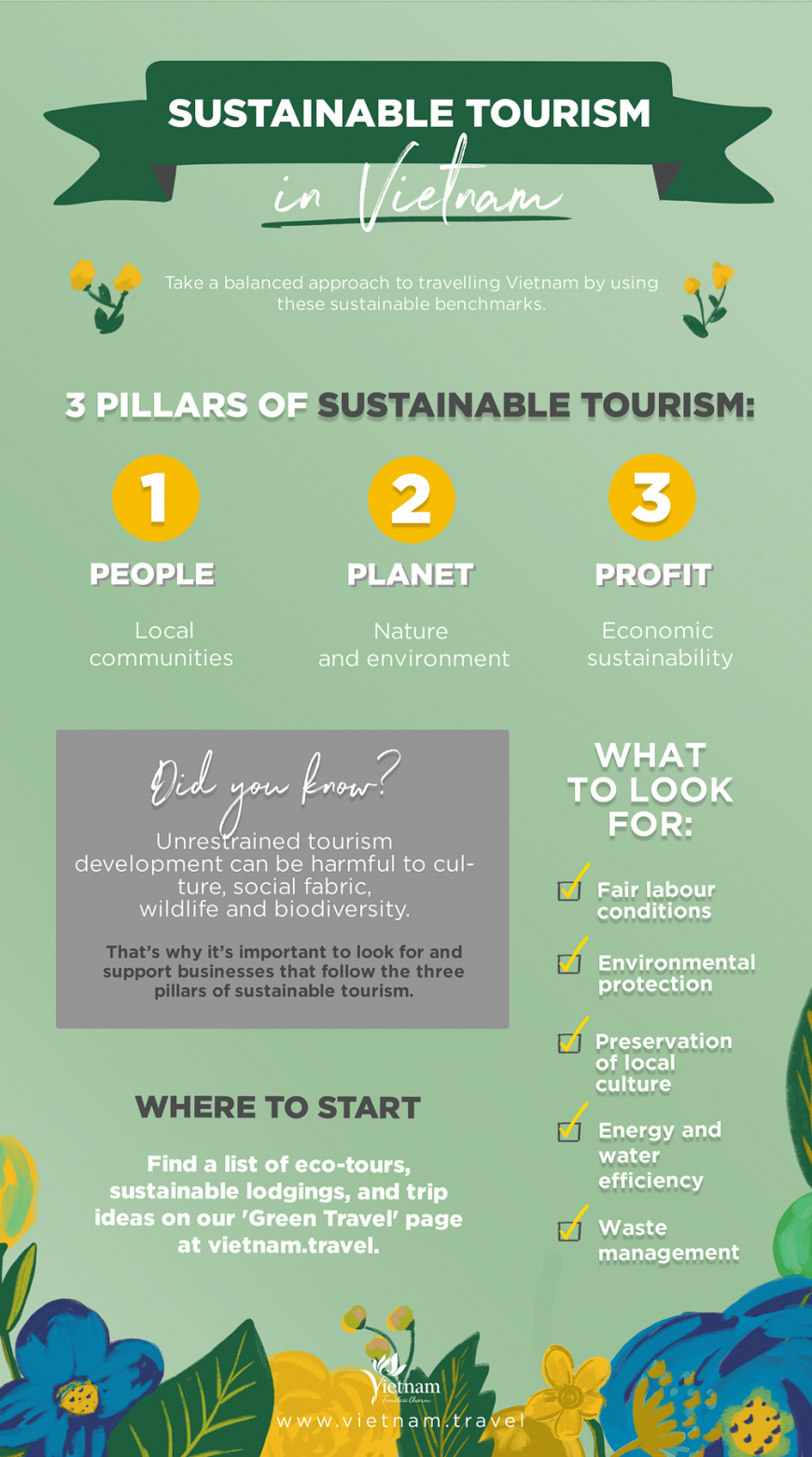
Traveling sustainably: Tips for reducing your carbon footprint
Written: The Top Thing Staff | October 16, 2023

Transportation Options for Sustainable Travel
Choosing Eco-friendly Modes of Transportation
When it comes to sustainable travel, one of the most important factors to consider is transportation. Here are some eco-friendly options you can choose from:
-
Public Transportation: Utilizing buses, trains, trams, or subways not only reduces carbon emissions but also helps ease traffic congestion. It's a cost-effective and efficient way to explore a new city while minimizing your environmental impact.
-
Cycling and Walking: For shorter distances, consider cycling or walking. Not only does this reduce your carbon footprint, but it also allows you to experience the destination at a slower pace, enabling you to discover hidden gems and connect with the local culture.
-
Car Sharing and Carpooling: If you must use a car, consider car-sharing services or carpooling with others. Sharing a vehicle reduces the number of cars on the road, decreases fuel consumption, and lowers emissions.
Tips for Reducing Carbon Emissions while Traveling
In addition to choosing eco-friendly modes of transportation, here are some tips to further reduce your carbon emissions while traveling:
-
Pack Light: Packing lightly reduces the weight of your luggage, which, in turn, helps decrease fuel consumption by planes, trains, or cars.
-
Stay in Eco-friendly Accommodations: Look for hotels or accommodations that prioritize sustainability. These establishments often implement energy-saving measures, waste reduction strategies, and promote responsible tourism practices.
-
Offset Your Carbon Footprint: Consider offsetting your carbon footprint by supporting projects that reduce greenhouse gas emissions. Many organizations offer carbon offset programs that invest in renewable energy, reforestation, or clean cookstove initiatives.
By choosing eco-friendly modes of transportation and implementing sustainable travel practices, you can reduce your environmental impact and contribute to a more sustainable future.

Accommodation Choices for Sustainable Travel
Traveling sustainably is becoming increasingly important for conscious travelers looking to minimize their environmental impact. One aspect of sustainable travel to consider is the accommodation you choose. By opting for eco-friendly accommodations and alternative lodging options, you can make a positive difference.
Eco-friendly Hotels and Resorts
Eco-friendly hotels and resorts are a great choice for sustainable travel. These establishments are designed and operated with a focus on minimizing their environmental footprint. They implement eco-friendly practices such as energy and water conservation, waste reduction, use of renewable resources, and support for the local community. Staying at an eco-friendly hotel or resort allows you to enjoy your trip while knowing that your accommodation choice aligns with your values.
Alternative Accommodation Options for Sustainable Travelers
If you prefer a unique and more sustainable experience, there are alternative accommodation options available. These include:
-
Eco-lodges: These are accommodations that are typically located in natural settings and built using sustainable materials. They offer an immersive experience in nature while being mindful of their environmental impact.
-
Home-sharing platforms: Utilizing home-sharing platforms like Airbnb allows you to stay in someone's home, reducing the need for hotels and their resource consumption. You can choose accommodations that are eco-friendly or have sustainable practices.
-
Camping and glamping: Camping or glamping (glamorous camping) is an excellent option for outdoor enthusiasts. By choosing designated campgrounds or eco-friendly glamping sites, you can minimize your impact on the environment while enjoying a unique adventure.
Remember to research and choose accommodations that prioritize sustainability. Look for certifications such as LEED, Green Key, or eco-labels to ensure your accommodation choice meets established sustainability standards.
By making conscious choices in your accommodation, you can contribute to sustainable travel and have a more positive impact on the environment.

Responsible Tourist Practices
Are you a responsible traveler who wants to explore the world while minimizing your impact on the environment and supporting local communities? Traveling sustainably is the answer! By adopting certain practices, you can make a positive difference and create memorable experiences for yourself and the places you visit.
Supporting Local Communities and Businesses
-
Stay in locally-owned accommodations: Opt for hotels, guesthouses, or homestays that are locally owned and operated. This way, your money directly benefits the local economy rather than large international corporations.
-
Buy from local businesses: Instead of shopping at chain stores or multinational brands, support local artisans, markets, and independent businesses. This helps preserve local traditions, craftsmanship, and cultural heritage, while also keeping money circulating within the community.
-
Engage in community-based tourism: Participate in activities and tours organized by local communities. This allows you to learn about their culture, traditions, and way of life directly from the people who live there. It's a great way to support sustainable livelihoods and create mutual understanding.
Respecting Cultural and Natural Heritage
-
Learn about local customs and traditions: Before visiting a new destination, familiarize yourself with the local customs and traditions. Show respect by dressing appropriately, following local etiquette, and asking permission when taking photographs.
-
Minimize your environmental footprint: Practice responsible waste management, conserve water and electricity, and choose eco-friendly transportation options whenever possible. Leave natural areas as you found them and avoid activities that harm wildlife or contribute to habitat destruction.
-
Offset your carbon emissions: Consider offsetting the carbon emissions generated by your travel by supporting projects that reduce greenhouse gases or promote renewable energy. This can help mitigate the environmental impact of your journey.
Remember, traveling sustainably is about making a positive impact and preserving the beauty and authenticity of the places you visit. By following these practices, you can contribute to a more responsible and sustainable tourism industry.

Packing and Waste Management for Sustainable Travel
Packing Tips for Eco-conscious Travelers
When it comes to sustainable travel, packing wisely is essential. Here are some tips to help you minimize your environmental impact while still staying prepared:
-
Pack Light: Consider the weight of your luggage and try to pack only the essentials. This reduces the carbon emissions associated with transportation and saves energy.
-
Choose Sustainable Materials: Use reusable or eco-friendly alternatives such as stainless steel water bottles, bamboo utensils, and cloth bags. Avoid single-use plastics that contribute to pollution.
-
Opt for Eco-friendly Toiletries: Carry biodegradable products like shampoo bars, solid soap, and toothpaste tablets. These eliminate the need for wasteful single-use plastic bottles and tubes.
Reducing Plastic Waste and Recycling while Traveling
To minimize plastic waste and promote recycling during your travels, follow these simple steps:
-
Bring a Reusable Water Bottle: Fill it up at water stations or ask for refills at cafes instead of buying bottled water.
-
Carry a Reusable Shopping Bag: Use it for souvenirs, groceries, or any other items you purchase along the way to avoid using plastic bags.
-
Dispose of Waste Properly: Find recycling bins and compost facilities where available. If they're not accessible, carry waste until you find appropriate disposal facilities.
-
Support Local Initiatives: Seek out accommodations and businesses that prioritize sustainability. They may have recycling programs or use renewable energy sources.
By implementing these packing and waste management strategies, you can contribute to a more sustainable travel experience. Remember, every small action makes a difference in protecting our environment!
/cdn.vox-cdn.com/uploads/chorus\_image/image/72484758/NaomiElliott\_Vox\_WildlifeTourism.0.jpg)
Sustainable Activities and Experiences
As a conscious traveler, you surely want to explore the world in a way that leaves a positive impact on the environment and local communities. Here are some key ways you can travel sustainably:
Engaging in Nature Conservation and Eco-tourism
-
Support Conservation Efforts: Choose destinations and activities that prioritize conservation and promote the protection of natural resources. This can include visiting national parks, participating in animal rescue programs, or supporting eco-lodges that follow sustainable practices.
-
Responsible Wildlife Encounters: When interacting with wildlife, select reputable tour operators that prioritize animal welfare and adhere to ethical practices. Avoid activities that exploit animals or disturb their natural habitats.
Participating in Local Responsible Tourism Initiatives
-
Support Local Communities: Engage in community-based tourism initiatives that empower local communities, preserve cultural heritage, and provide economic opportunities. This can involve staying in locally-owned accommodations, dining at local restaurants, and purchasing souvenirs from local artisans.
-
Minimize Environmental Impact: Practice sustainable habits such as conserving water and energy, reducing waste, and respecting natural habitats. Choose eco-friendly transportation options, like public transportation or cycling, whenever possible.
Remember, sustainable travel is about making responsible choices that benefit the environment, wildlife, and local communities. By adopting these practices, you can have a memorable and meaningful travel experience while leaving a positive impact on the destinations you visit.
Here's a table to recap sustainable travel tips:
| Sustainable Activities and Experiences | Explanation |
|---|---|
| Engaging in Nature Conservation and Eco-tourism | – Support conservation efforts: Choose destinations and activities that prioritize the protection of natural resources. – Responsible wildlife encounters: Select reputable tour operators that prioritize animal welfare and avoid activities that exploit animals. |
| Participating in Local Responsible Tourism Initiatives | – Support local communities: Engage in community-based tourism initiatives that empower locals and preserve cultural heritage.- Minimize environmental impact: Practice sustainable habits and choose eco-friendly transportation options. |

Sustainable Dining while Traveling
Choosing Sustainable Food Options
When you travel, one way to make a positive impact on the environment is by choosing sustainable food options. Here are some tips to help you make responsible choices while dining out:
-
Eat Local: Look for restaurants that serve locally sourced ingredients. This not only supports the local economy but also reduces the carbon footprint associated with transporting food long distances.
-
Choose Sustainable Seafood: If you're a seafood lover, opt for sustainable seafood that is sourced ethically and responsibly. Stay away from endangered species and support restaurants that follow sustainable fishing practices.
-
Reduce Food Waste: Be mindful of portion sizes and try to finish your meal to avoid food waste. If you can't finish your meal, consider taking leftovers with you or ask the restaurant if they have a composting program.
Supporting Farm-to-Table and Organic Practices
Another way to travel sustainably is by supporting farm-to-table and organic practices. Here's how you can do it:
-
Visit Farmers Markets: Explore the local farmers markets to buy fresh, organic produce directly from the farmers. This not only ensures that you're getting quality food but also supports local agriculture and reduces packaging waste.
-
Choose Organic Restaurants: Look for restaurants that prioritize organic ingredients in their menus. Organic farming methods promote healthier soil, biodiversity, and reduce the use of harmful pesticides and chemicals.
-
Go Vegetarian or Vegan: Embrace meatless meals and try out vegetarian or vegan restaurants. Animal agriculture has a significant impact on the environment, so reducing your consumption of meat can help reduce greenhouse gas emissions and preserve natural resources.
By making sustainable food choices while traveling, you can enjoy delicious meals while minimizing your environmental impact. Remember, every small step makes a

Conclusion
You've learned about the importance of traveling sustainably and how you can make a difference during your trips. By following these tips and embracing sustainable practices, you can have a positive impact on the environment, local communities, and your own travel experiences.
Benefits of Traveling Sustainably
-
Environmental Preservation: Traveling sustainably helps minimize your carbon footprint, reducing greenhouse gas emissions, and protecting the natural habitats and biodiversity of destinations.
-
Social Responsibility: By supporting local businesses and communities, you contribute to their economic development and cultural preservation. This fosters a more authentic and meaningful travel experience.
-
Economic Benefits: Sustainable tourism can generate economic opportunities and create jobs, particularly in rural areas. By choosing sustainable accommodations, transportation, and activities, you contribute to a more equitable distribution of tourism revenue.
Future Trends in Sustainable Travel
-
Eco-Friendly Accommodations: More hotels and resorts are adopting eco-friendly practices, such as using renewable energy, reducing water consumption, and implementing waste management systems.
-
Carbon-Neutral Travel: Airlines and travel companies are taking steps to offset their carbon emissions by investing in renewable energy projects, reforestation efforts, or purchasing carbon credits.
-
Responsible Wildlife Tourism: Travelers are increasingly seeking ethical wildlife encounters that prioritize animal welfare, conservation, and education rather than exploiting animals for entertainment purposes.
Remember, the choices you make as a traveler can make a difference. By traveling sustainably, you can protect the planet, support local communities, and create lasting memories. So, pack your bags and embark on your eco-friendly adventures!



